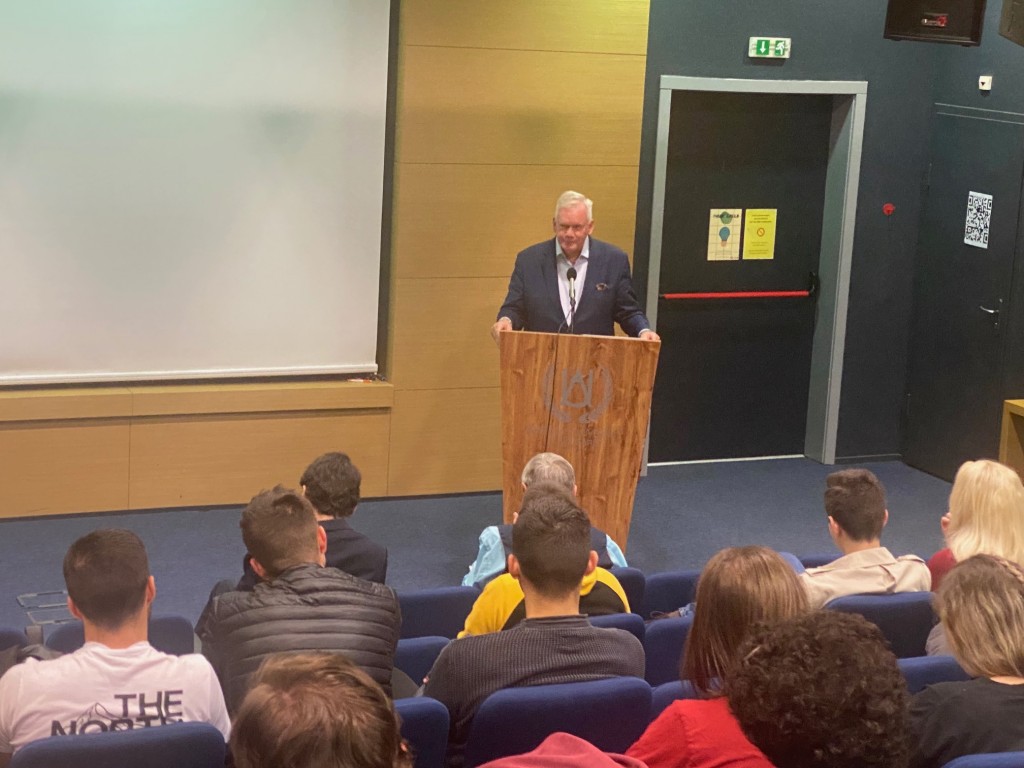 Hannes H. Gissurarson, Professor Emeritus of Politics at the University of Iceland, gave a talk about practical liberal solutions of economic problems at a conference in Blagoevgrad in Bulgaria on 26 April 2024, held by the American University there and the Austrian Economics Center in Vienna. Gissurarson said that classical liberalism was not about idle dreams or castles in the air, and that the desirable consequences of limited government and private property were obvious and material, as the examples of the United States in the latter half of the nineteenth century, Hong Kong in mid-twentieth century and Switzerland all showed.
Hannes H. Gissurarson, Professor Emeritus of Politics at the University of Iceland, gave a talk about practical liberal solutions of economic problems at a conference in Blagoevgrad in Bulgaria on 26 April 2024, held by the American University there and the Austrian Economics Center in Vienna. Gissurarson said that classical liberalism was not about idle dreams or castles in the air, and that the desirable consequences of limited government and private property were obvious and material, as the examples of the United States in the latter half of the nineteenth century, Hong Kong in mid-twentieth century and Switzerland all showed.
It has often been pointed out that some scarce goods cannot be priced correctly in market transactions, and then it has been asserted that government therefore has to provide them. These are the so-called ‘public goods’. A textbook example is the service provided by lighthouses for ships. But when the matter is investigated, it emerges that the service provided by lighthouses has indeed been priced, as a part of the service that lighthouses and ports jointly provide. The price for the service of the lighthouses is included in the port charges. Gissurarson also pointed out that government need not itself produce various goods, even if it could finance their production. One example was primary education. Government could send vouchers to parents and children which could be used to pay for education (with the possibility of adding something as well out of private pockets to the schools). Thus schools could be private while the consumers of their services could choose between them.
Gissurarson recalled that in Iceland government had a monopoly on broadcasting until 1986. It was abolished, after he and his friends operated a radio station in protest for eight days in October 1984, until the authorities were able to locate the transmitter upon which the police closed the radio station. This lead to Gissurarson’s first conviction, as he put it (his two other convictions being in a defamation suit in England, later dismissed on appeal, and in a case about the use of texts by a deceased Icelandic writer).
Gissurarson observed that technical innovations tended to facilitate pricing goods which had hitherto been regarded as public goods. One example was electronic reading machines at the beginning of roads, bridges and tunnels which enabled the owners of these facilities easily to charge passing car drivers for their use, deducting the fee in question from their credit cards.


